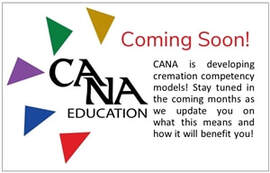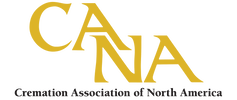a new workforceAs of 2017, the Millennial generation filled the majority of positions in the US workforce (35%), more than both the Baby Boomer (25%) and Gen X-ers (33%). It is predicted that by 2030, Millennials will hold 75% of the roles in the death care industry, a very large increase in a very short period of time. As baby boomers retire, they take decades of experience and honed knowledge, skills, and abilities with them. Young professionals, even with all their energy and excitement, cannot immediately replace the decades of experience of your senior staff. The upside is that these incoming employees won’t carry years of pre-conceptions and assumptions about their community, which will make their onboarding and training that much easier. The downside is that it takes time and well-thought out training programs to get new recruits up to speed. a new traditionThe US cremation rate passed 50% for the first time in 2016. We can officially say it – cremation is the new tradition. As consumer preferences have changed, the knowledge and skills required from funeral directors to work with consumers has changed as well. As an employer, it means you require specific sets of skills in your employees and expectations for their experience and training. It requires innovation. Our hard-working schools provide the education, but they can’t make a professional – only experience and guidance can do that. This component is why so many states and provinces require apprenticeships before licensure as well as continued education to maintain licensure. A mid-career professional considering their advancement can’t return to school easily, so they must rely on CE providers to address the gaps. In a previous blog post we talked about how to assess the quality of a learning experience, but how do you assess the importance of the topic presented? In this cremation-focused world, how can you know you’re getting the latest in industry education to meet the current needs of your community? BACK TO BASICS What makes someone successful at their job? How do we evaluate staff to assess their skills? How do you know you have a solid base of knowledge to build on as you move forward in your career? CANA is working to address the fundamentals of the profession as we know it today now that cremation is the new tradition. Competencies are the foundation of every profession – these are sets of knowledge, abilities and skills that a person needs to be successful in their job. Competencies are used in many ways within each profession:
After completing school, students generally complete an apprenticeship where they learn hands on skills to apply that knowledge learned in school. Once the apprenticeship is over, state and provincial agencies take over and monitor continued professional development through required continuing education. And that’s where CANA enters the lifelong learning continuum. As we look at competencies within our profession, CANA believes we could be doing more related to cremation. We can’t set employees up for success if we aren’t teaching them the knowledge, skills and abilities that are specific to cremation, particularly the employees who graduated many years ago, and have seen the profession rapidly changing around them. This is what we refer to as a skills gap – when only a limited set of the population has the needed competencies to do the job. And we see a big skill gap when it comes to cremation. what can we do?Fear not, CANA friends. After all, we are All Things Cremation. We have been diligently working to identify those cremation competencies and will be developing education programs and other resources needed to support employees as they work to achieve them. We can’t wait to share them with you. Be sure to attend CANA’s 100th Annual Cremation Innovation Convention with your staff where I’ll preview these competencies and talk about how to use them to support your employees and improve your bottom line — and earn some professional and innovative continuing education while you're at it. And watch for future blog posts where I explain the process we go through to identify competencies. Join CANA July 25–27, 2018 at the Fort Lauderdale Marriott Harbor Beach Resort & Spa where Jennifer will uncover the competencies that make a cremation professional as part of Session 4 • Cremation Fundamentals, topics related to foundational business practices. Travel together at a discount! For over 100 years, CANA has drawn the best and brightest in the industry. Now, you can share the wealth of professional cremation education and network with innovators and save! Early birds get $100 off and any Additional Employee registration is $200 off that. With a wide range of valuable networking and educational opportunities, the event will feature sessions that examine the last 100 years of CANA conventions and growth in cremation, evaluate where businesses are today, and focus on the next 100 years by providing strategic and practical information for long-term success. See our full program and learn more about how we'll mark more than 100 years of cremation success here: gocana.org/CANA18
Comments are closed.
|
The Cremation Logs Blog
Cremation experts share the latest news, trends, and creative advice for industry professionals. Register or log in to subscribe and stay engaged with all things cremation. Categories
All
Archives
July 2024
|
|
